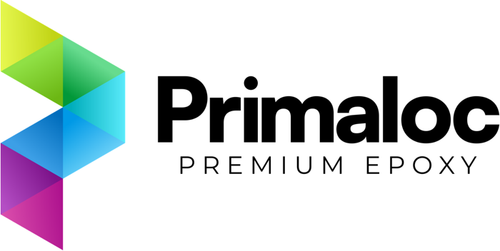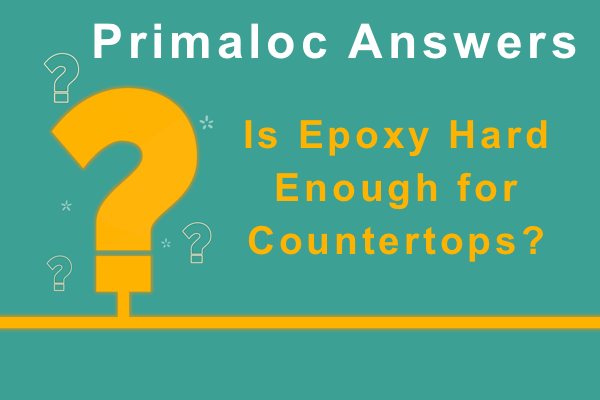When it's time to choose a material for your countertops, focusing on durability and ease of maintenance is great place to start. Among the wide selection of choices typically available, only a select few are reliable enough to meet the needs of the average countertop.
Among these options are materials such as wood, marble, granite, and quartz—and each of them share several beneficial characteristics:
- They offer varying degrees of affordability.
- They are user-friendly in terms of installation and modification.
- They accept sealants well, enhancing their durability.
- Once sealed, they are relatively straightforward to maintain and clean.
Yet, beyond traditional materials is an outstanding alternative valued for its sheer resilience and and user-friendliness: epoxy resin.
Epoxy resin represents a contemporary choice for countertops, distinguishing itself by its exceptional performance either as a finishing coat for a substrate or as the primary material itself. Its elegant combination of form and function make it a standout choice for modern countertop design.
What Is Epoxy Resin?
Epoxy resin is a type of synthetic plastic polymer that becomes a hard, durable material when cured. It's typically composed of two parts: a resin and a hardener. When these two components are mixed together, they react chemically to form a rigid plastic-like substance.
Epoxy resin is known for its strong adhesive qualities, high durability, and resistance to moisture and chemicals, making it popular in a variety of applications, including coatings, adhesives, and art projects.
A Customizable Finish
Aside from it's physical strength, epoxy resin is also known for its glasslike aesthetic. Most high-quality epoxy resins will cure to a crystal-clear finish, being transparent like glass, but remarkably resilient like far tougher materials. This resilience allows it to withstand very rough treatment without buckling or cracking under pressure.
Additionally, epoxy resin has a highly customizable appearance, which is very receptive to colorants such as powder pigments and liquid pigments.
Appearances aside, though, how well does epoxy resin manage as a countertop base material or sealant? Throughout the rest of this article, we'll talk about how why epoxy is a top-tier contender as a countertop surface material. We'll also answer some common questions often asked by people considering an epoxy countertop for their home or business.
Is Epoxy Hard Enough for Countertops?
Yes, epoxy resin is easily hard enough for countertops. When epoxy has cured, it forms a solid, durable surface that can readily withstand the daily demands of kitchen or bathroom use.
Epoxy inherently has many enticing features and benefits:
- It's waterproof.
- It's heat resistant (to a certain degree)
- It's nearly impervious to many forms of wear and tear.
- Capable of a seamless, glossy finish that can be customized.
The combination of these traits is what gives epoxy an edge over many other countertop materials. While most conventional countertop materials are adequate, often requiring a separate sealant or varnish, epoxy resin can handle all of the usual issues (such as moisture and scratching) without breaking a sweat.
Let's take a look at each feature in more detail.
Feature #1: Epoxy Is Waterproof
When epoxy cures, it forms a tightknit bond with its own molecules as well as with any adjacent substrate materials. This bond repels water molecules, preventing them from permeating the epoxy surface and causing water to bead up. In other words, epoxy finishes are waterproof.
When used as a sealant, epoxy's waterproofing trait allows materials that normally struggle to handle moisture—such as wood and granite—to be used for their aesthetic beauty, while allowing the transparent epoxy exterior to safeguard them from what would normally be their weaknesses (moisture, scratching, staining, and such).
This is exceptionally handy for countertops, as it makes them easier to keep clean and makes it far more difficult for germs and bacteria to persist on the epoxy surface.
Feature #2: Epoxy Is Heat Resistant
Epoxy's heat resistance is a noteworthy benefit for countertops because it enables the surface to withstand the heat from hot dishes, cookware, and small kitchen appliances without sustaining damage. While it's not advisable to place extremely hot items directly on an epoxy surface without protection—it does have its limits—the material can resist higher temperatures compared to many other countertop finishes.
The heat resistance of cured epoxy helps prevent warping, discoloration, or melting that could occur with less durable sealants and substrate materials. As a result, epoxy countertops maintain their aesthetic appeal and structural integrity even with regular exposure to the moderate heat of a typical kitchen environment.
Feature #3: Epoxy Is Remarkably Durable
Perhaps what epoxy is best known for is its unmatched durability as a sealant. Once it has fully cured, epoxy resin becomes a hard, solid surface that is resistant to impact, scratching, and daily wear and tear.
Epoxy's high endurance makes it an excellent choice for applications where a strong, long-lasting material is needed, such as in flooring, tabletops, and, notably, countertops. Its resilience to different forms of physical stress helps keep it in excellent shape while preserving its appearance over time, thereby making it a reliable material for both industrial and home uses.
Learn more about maintaining epoxy surfaces in our FAQs article here!

Feature #4: Epoxy Is Highly Customizable
In addition to epoxy's protective elements, it also has admired aesthetic traits.
As mentioned earlier, when a high-quality epoxy resin is properly applied and allowed to cure, it will have a crystal-clear transparency. This glasslike finish enables epoxy to showcase the underlying substrate materials, keeping them visible for their beauty while optimally safeguarded by one of the strongest clear sealants available.
See our Curing FAQ Article for answers to common questions on achieving a glasslike finish!
But for those wanting something different, the appearance of epoxy itself is also highly customizable. Epoxy resin can be tinted with pigments, dyes, or other colorants (such as alcohol ink) to achieve almost any color or effect.
Additionally, decorative items like glitter, metallic powders, or even small objects can be embedded into the epoxy prior to curing to produce unique textures and other artistic elements. Techniques can also be applied to mimic natural materials like marble or granite, offering a versatile range of aesthetic options.
With epoxy resin, there are few limits on what you can achieve once you have an idea in mind.
Curious about coloring epoxy? We recommend our mica powder epoxy pigments. Learn more about them in our guide here!
Answers to Common Questions About Epoxy Countertops
In this section, we'll give answers to a few of the more common questions related to epoxy countertops.
Can You Epoxy Over Older Countertops?
Absolutely. Take a look at our guide on this for more information.
How Many Coats of Epoxy Does a Countertop Require?
One flood coat will almost always suffice. A seal coat is highly recommended to seal the pores and prevent excessive air bubbles from becoming trapped in the epoxy finish.
What's the Best Way to Spread Epoxy Onto a Countertop?
Typically, you'll want to let the epoxy do most of the work. A good countertop epoxy will be self-leveling, meaning it can spread itself across flat surfaces until it settles at a certain thickness. This thickness varies by epoxy brand and variant. For instance, our Primaloc Bar & Table Top Epoxy self-levels to 1/8 inch thickness.
You can assist the epoxy in spreading by moving over uncoated spaces as you pour. This will hasten the spread until the substrate is uniformly coated.
Learn more about pouring and related aspects of the epoxy process here.
Primaloc Epoxy: Premium Epoxy for Premium Results
When it comes to epoxy resin, Primaloc Epoxy gets the job done. Our epoxy resin is premium-grade, with high performance in every category, including:
- Unmatched Strength: A Primaloc finish won't buckle, even under high pressure.
- Long-Lasting Resilience: Primaloc epoxy lasts for many years with minimal care, and can endure high-traffic environments with ease.
- A Crystal-Clear Coating: With its pristine, transparent appearance, looking at a cured Primaloc coating is like peering through a window.
Epoxy resin can be beautiful, strong, and long-lasting—which is why you shouldn't compromise on quality. With Primaloc Epoxy Resin, you get the ultimate finish in durability and visual appeal.
Protect your surfaces by giving them a rock-solid epoxy finish. Choose strong. Choose reliable. Choose Primaloc.





